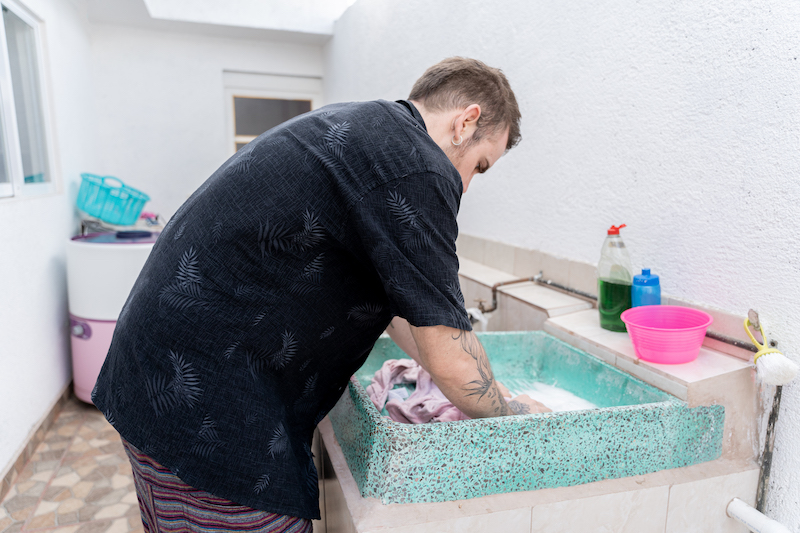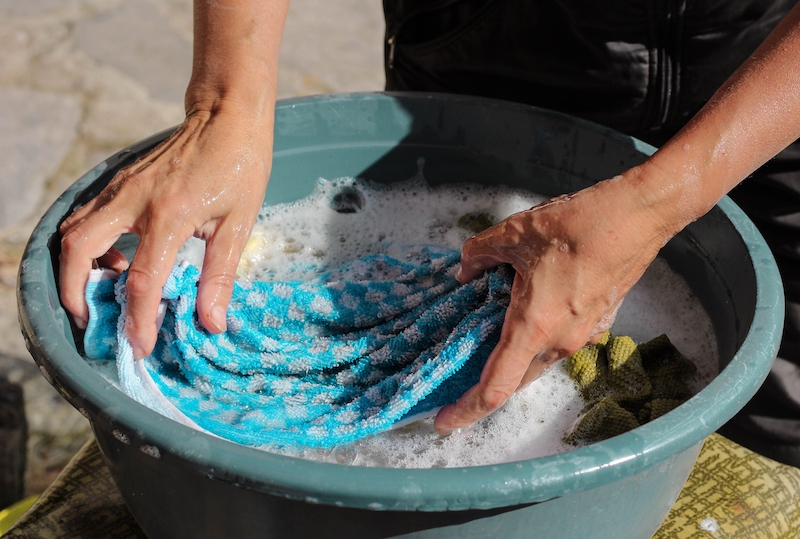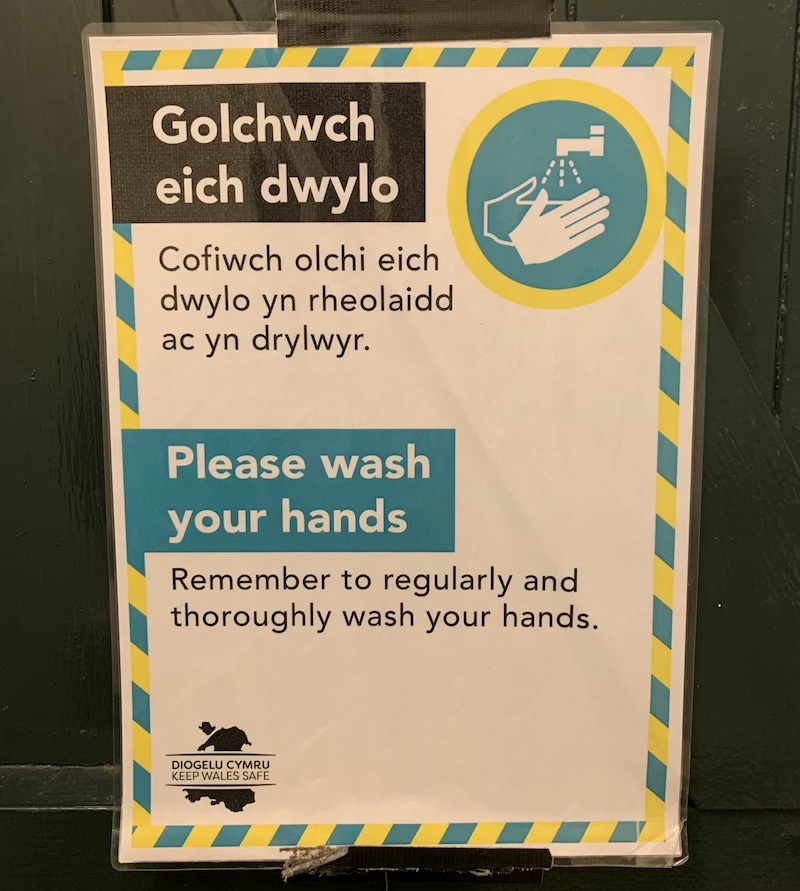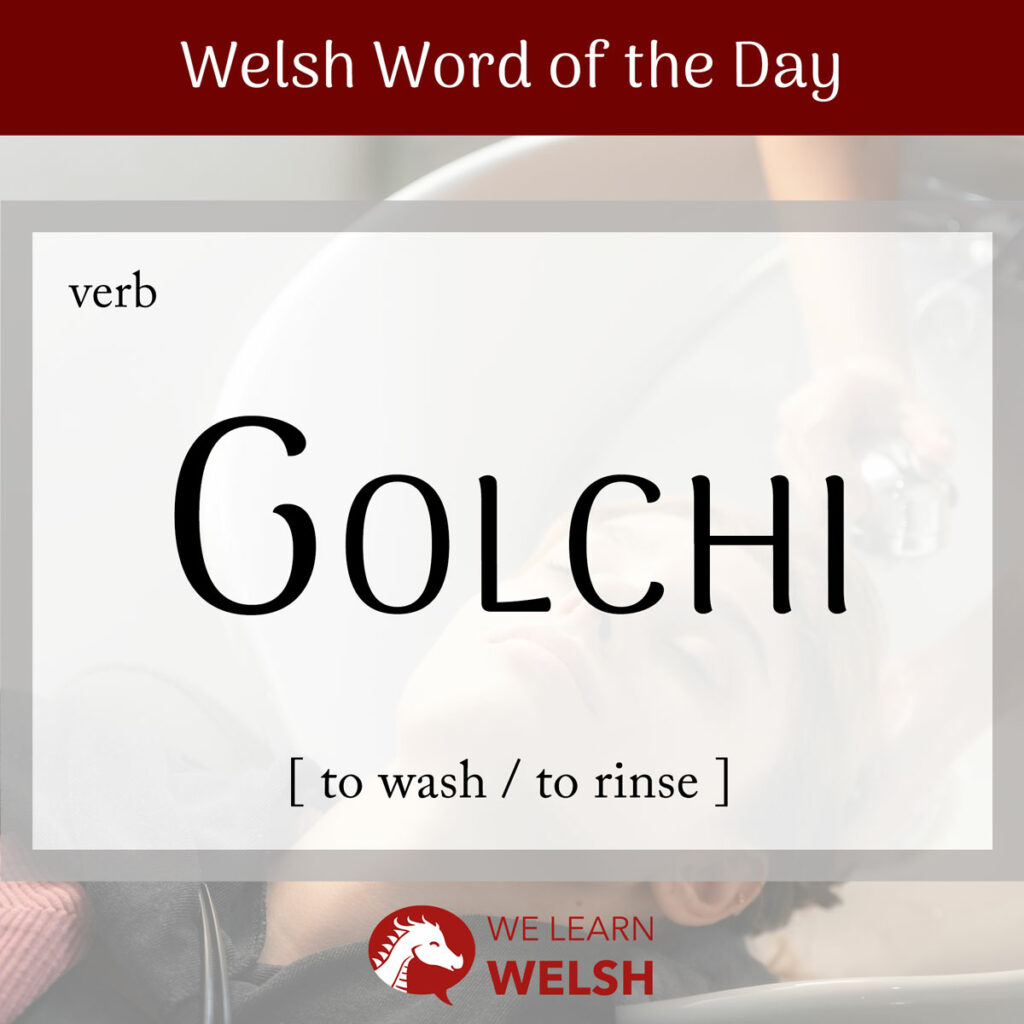As adults, and especially as parents, we find ourselves spending much of our time washing something, whether it’s laundry, dishes, or our children’s dirty hands. That’s why the Welsh word golchi (to wash) is one of the first we tend to learn and frequently use. In fact, the very first phrase I ever learned in Welsh was golchi llestri, which means to wash the dishes!
golchi
to clean / to wash
According to Geiriadur Prifysgol Cymru, golchi is a verb-noun that derives from the Proto-Celtic *uolk-, which in turn comes from *uelq– meaning wet or damp. Here are the mutations that occur:
Soft mutation
olchi
Nasal mutation
ngolchi
Aspirate mutation
N/A
In its most literal form, golchi means to wash or to rinse and is used for objects that require a good scrub down. Here are a few of the most common items we tend to wash on a regular basis:
- golchi llestri – to wash dishes
- golchi dillad – to wash clothes
- golchi dwylo – to wash hands (note that the expression golchi dwylo o rywbeth – to wash one’s hands of something – also exists in Welsh)
- golchi’r car – to wash the car
- golchi ffenestri – to wash windows
- golchi pen / gwallt – to wash hair
Ar ôl golchi’r car, mae’n edrych mor lân. Sa i’n meiddio ei yrru!
After washing the car, it looks so clean. I don’t dare drive it!

Important:
When the action refers to the act of washing oneself or someone else, you need to use the verb ymolchi (to wash oneself / to have a wash) rather than golchi. For example, you can say say Rhaid i mi ymolchi (I must wash myself) or Dw i’n ymolchi’r babi (I wash the baby).
In place of golchi, you also have the option of using the expression rhoi golchiad (i rywbeth), which literally translates to to give (something) a wash.
Dw i’n mynd i roi golchiad i’r dillad.
I’m going to give the clothes a wash.
In order to wash things, we rely on a variety of nwyddau golchi (washing products), ranging from the ubiquitous sebon golchi (household soap) to powdr golchi (washing powder) for the peiriant golchi (washing machine), or hylif golchi (washing-up liquid) when tackling the dishes. These everyday essentials are key to keeping our homes and personal belongings ffres a glân (fresh and clean)!
If you get a staen (stain) on your shirt, always make sure to ei olchi allan (wash it out) right away! Otherwise you may have to throw it away or use it as a rag to golchi dy loriau (wash your floors).

As is typical with common verbs like golchi, it carries a couple of figurative meanings.
The first, which is now archaic and no longer part of everyday use, is to work hard at something. From this, we get the expression golchi arni hi, meaning to set about a task energetically.
Secondly, it can refer to giving someone a thrashing or beating. This is seen in the phrase Mae ei dad o wedi ei olchi o’n iawn (His dad has given him a good thumping), which is still used in everyday speech in Môn (Anglesey) and northern Gwynedd. The expression golchi ar (rywun) (literally “to wash on someone”) means to chastise someone.
By extension, golchi can be used to describe the act of coating or colouring a surface, such as metal.


